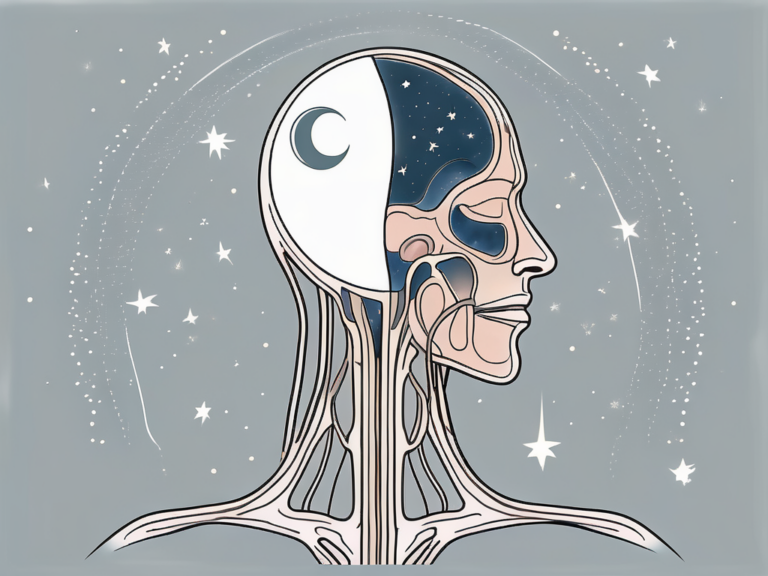Tips on How to Go to Sleep Faster
In today’s fast-paced and busy world, getting a good night’s sleep can sometimes seem like an elusive dream. The busyness of our lives often leaves us tossing and turning, struggling to fall asleep. However, there are several simple yet effective tips that can help you go to sleep faster and enjoy a restful night’s sleep. In this article, we will explore these tips in detail, providing you with the knowledge and tools to overcome insomnia and achieve a state of peaceful slumber.
Understanding the Importance of Sleep
Before delving into the tips on how to go to sleep faster, it is essential to understand the significance of sleep in our lives. Sleep plays a vital role in maintaining overall health and wellness. During sleep, the body engages in crucial restorative processes, including tissue repair, hormone regulation, and memory consolidation.
Furthermore, ample sleep is linked to improved concentration, enhanced cognitive function, and a stronger immune system. On the other hand, sleep deprivation can lead to a host of negative consequences on physical, mental, and emotional well-being.
The Role of Sleep in Health and Wellness
Sleep is not merely a time of rest but also a period of healing and rejuvenation. It is during sleep that the body repairs damaged tissues, strengthens the immune system, and replenishes energy levels. Adequate sleep is essential for maintaining a healthy immune system, preventing chronic illnesses, and promoting overall well-being.
Moreover, sleep plays a crucial role in cognitive function. It aids in memory consolidation, allowing the brain to process and organize information efficiently. Sufficient sleep also enhances creativity, problem-solving skills, and decision-making abilities.
The Consequences of Insufficient Sleep
Insufficient sleep can have a profound impact on various aspects of our lives. Chronic sleep deprivation is associated with an increased risk of developing various health conditions, including obesity, diabetes, cardiovascular disease, and even certain types of cancer.
Furthermore, lack of sleep can affect cognitive function and lead to decreased productivity, impaired concentration, and difficulty in learning and retaining information. It can also have detrimental effects on mental health, contributing to anxiety, depression, and mood disorders.
But did you know that sleep deprivation can also have an impact on your physical appearance? It can lead to dark circles under the eyes, dull and tired-looking skin, and even premature aging. This is because during sleep, the body produces collagen, a protein that helps keep the skin firm and elastic. Without enough sleep, the production of collagen decreases, resulting in the appearance of fine lines and wrinkles.
Additionally, sleep deprivation can affect our social interactions and relationships. When we are sleep-deprived, we may experience irritability, mood swings, and difficulty in regulating our emotions. This can strain our relationships with family, friends, and colleagues, as well as impact our overall quality of life.
Identifying Factors That Affect Sleep
Understanding the factors that affect sleep is crucial in devising strategies to improve sleep quality and fall asleep faster. Sleep is influenced by various external and internal factors, including physical and psychological aspects.
Physical Factors Impacting Sleep
Physical factors such as noise, light, temperature, and comfort can significantly impact our ability to fall asleep and stay asleep. Creating a sleep-inducing environment by eliminating distractions, using blackout curtains, and maintaining a comfortable temperature can greatly enhance sleep quality.
Did you know that exposure to excessive noise during sleep can disrupt the sleep cycle and lead to fragmented sleep? Studies have shown that even low-level noise, such as traffic sounds or a ticking clock, can affect the quality of sleep. Investing in earplugs or using white noise machines can help mask these disruptive sounds and promote a more peaceful sleep environment.
Furthermore, the impact of light on sleep should not be underestimated. Exposure to bright light, especially blue light emitted by electronic devices, can suppress the production of melatonin, a hormone that regulates sleep. Consider implementing a “digital curfew” by avoiding screens for at least an hour before bedtime or using blue light filters on electronic devices to minimize its effect on sleep.
Psychological Factors Influencing Sleep
The state of our mind plays a crucial role in our ability to fall asleep. Stress, anxiety, and racing thoughts can keep our minds alert and prevent us from achieving a relaxed state necessary for sleep. Practicing relaxation techniques such as deep breathing, meditation, and mindfulness can help calm the mind and induce sleep.
Did you know that the quality of our sleep can also be affected by our emotional well-being? Negative emotions, such as sadness or anger, can disrupt the sleep cycle and lead to difficulties in falling asleep or staying asleep throughout the night. Engaging in activities that promote emotional well-being, such as journaling, talking to a trusted friend, or engaging in hobbies, can help alleviate these negative emotions and improve sleep quality.
Moreover, establishing a bedtime routine that incorporates activities promoting relaxation, such as reading a book, taking a warm bath, or listening to soothing music, can signal to the brain that it is time to wind down and prepare for slumber. This routine not only helps create a sense of predictability but also allows the body and mind to transition from the busyness of the day to a state of calmness conducive to sleep.
Implementing Healthy Sleep Habits
In addition to understanding the factors that affect sleep, adopting healthy sleep habits can significantly improve sleep quality and promote faster sleep onset.
Creating a Sleep-Inducing Environment
One key aspect of healthy sleep habits is creating an environment that promotes relaxation and sleep. This involves making your bedroom a sanctuary dedicated to sleep by keeping it clean, tidy, and free from distractions.
Investing in a comfortable mattress and pillows, using soft lighting and soothing colors, and considering white noise machines or earplugs can all contribute to a sleep-inducing environment that invites quality rest.
Furthermore, incorporating elements of nature into your sleep environment can have a positive impact on sleep quality. Adding plants to your bedroom not only enhances the aesthetic appeal but also improves air quality, creating a fresh and calming atmosphere. Studies have shown that exposure to nature, even indoors, can reduce stress levels and promote a sense of tranquility, making it easier to fall asleep and stay asleep throughout the night.
Establishing a Consistent Sleep Schedule
Regularizing your sleep schedule is another important factor in achieving faster sleep onset. Our bodies have an internal clock known as the circadian rhythm, which regulates the sleep-wake cycle. Going to bed and waking up at the same time each day helps synchronize this internal clock and promote more efficient sleep.
Avoiding naps or limiting them to short durations, especially in the late afternoon or evening, can also help maintain a consistent sleep schedule and prevent sleep disturbances.
In addition to a consistent sleep schedule, incorporating a pre-sleep routine can further enhance the quality of your sleep. Engaging in relaxing activities such as reading a book, taking a warm bath, or practicing meditation can signal to your body that it’s time to wind down and prepare for sleep. This routine can help calm the mind and release any built-up tension, allowing for a smoother transition into a restful slumber.
By implementing these healthy sleep habits, you can create an environment that promotes relaxation, synchronize your internal clock, and establish a consistent sleep schedule. These practices will not only improve the quality of your sleep but also contribute to overall well-being and daytime productivity.
Exploring Natural Sleep Aids
In addition to healthy sleep habits, exploring natural sleep aids can provide further assistance in falling asleep faster.
When it comes to achieving a good night’s sleep, many people turn to the power of aromatherapy. Aromatherapy involves the use of essential oils to induce relaxation and promote sleep. Certain essential oils, such as lavender, chamomile, and ylang-ylang, have calming properties that can help quiet the mind and prepare the body for sleep.
So, how can you incorporate aromatherapy into your bedtime routine? Well, there are several methods to choose from. One popular option is to use an essential oil diffuser, which disperses the aroma throughout your bedroom, creating a soothing environment. Another option is to place a few drops of your chosen essential oil on your pillow, allowing the scent to gently waft up as you drift off to sleep. And if you’re in need of some extra relaxation, why not try taking a warm bath with diluted essential oils? The combination of warm water and calming scents can work wonders in preparing your body and mind for a restful night’s sleep.
Aside from aromatherapy, herbal supplements have also been used for centuries to aid in sleep. Valerian root, passionflower, and chamomile are just a few examples of herbal remedies known for their calming effects on the nervous system. These natural sleep aids can help promote relaxation and prepare your body for a peaceful slumber.
However, it’s important to exercise caution when incorporating herbal supplements into your sleep routine. While they can be helpful for some individuals, it’s always a good idea to consult with a healthcare professional before starting any new supplement regimen. They can provide guidance on proper dosage, potential interactions with medications, and any possible side effects to be aware of.
Utilizing Relaxation Techniques for Better Sleep
Relaxation techniques can effectively calm the mind and body, paving the way for faster sleep onset. In addition to the well-known benefits of relaxation, there are several other fascinating aspects to consider when incorporating these techniques into your bedtime routine.
The Benefits of Mindfulness and Meditation
Mindfulness and meditation practices involve a conscious focus on the present moment, helping to calm racing thoughts and promote relaxation. Integrating these practices into a bedtime routine can aid in quieting the mind and alleviating stress and anxiety, facilitating sleep induction.
But did you know that mindfulness and meditation have also been linked to improved overall well-being? Research suggests that regular mindfulness and meditation practices can enhance emotional regulation, increase self-awareness, and even improve cognitive function. So, by incorporating these techniques into your sleep routine, you’re not only improving your sleep quality but also benefiting your overall mental and emotional health.
The Role of Deep Breathing in Sleep Induction
Deep breathing exercises can act as a powerful tool to relax the body and prepare it for sleep. By focusing on slow, deep breaths, the body activates the parasympathetic nervous system, inducing a state of relaxation and promoting sleep onset.
But let’s delve a bit deeper into the science behind deep breathing. When we take slow, deep breaths, we stimulate the vagus nerve, which runs from the brainstem to the abdomen. This activation triggers a cascade of physiological responses, including a decrease in heart rate and blood pressure, and an increase in feelings of calmness and relaxation. So, by simply taking a few minutes to practice deep breathing before bed, you’re not only preparing your body for sleep but also engaging in a natural stress-reduction technique with numerous health benefits.
Deep breathing exercises can be practiced in bed before sleep or incorporated into a bedtime routine. It is essential to breathe deeply from the diaphragm, inhaling through the nose and exhaling through the mouth, to fully benefit from this relaxation technique.
So, the next time you find yourself struggling to fall asleep, remember the power of relaxation techniques. By incorporating mindfulness, meditation, and deep breathing into your bedtime routine, you can create a peaceful and tranquil environment that promotes restful sleep and overall well-being.
Addressing Sleep Disorders
In some cases, individuals may experience persistent sleep issues that require professional intervention. Identifying the symptoms of sleep disorders and seeking appropriate help is crucial in managing and addressing these conditions.
Sleep disorders encompass a range of conditions that affect the quality and quantity of sleep. Common symptoms include difficulty falling or staying asleep, excessive daytime sleepiness, snoring, irregular breathing patterns during sleep, and frequent awakenings during the night.
If you consistently experience any of these symptoms, it is advisable to consult with a healthcare professional who can conduct a thorough evaluation and provide appropriate guidance and treatment options.
However, it is important to note that sleep disorders can manifest in various ways, and recognizing the less obvious symptoms is equally important. For example, some individuals may experience restless leg syndrome, a condition characterized by an irresistible urge to move the legs, especially at night. This can lead to significant discomfort and disrupt sleep patterns.
Another lesser-known sleep disorder is sleep apnea, a condition where breathing repeatedly stops and starts during sleep. This can result in loud snoring, gasping for air, and feeling exhausted even after a full night’s sleep. It is crucial to be aware of these symptoms and seek professional help if they persist.
Recognizing Symptoms of Sleep Disorders
Sleep disorders encompass a range of conditions that affect the quality and quantity of sleep. Common symptoms include difficulty falling or staying asleep, excessive daytime sleepiness, snoring, irregular breathing patterns during sleep, and frequent awakenings during the night.
If you consistently experience any of these symptoms, it is advisable to consult with a healthcare professional who can conduct a thorough evaluation and provide appropriate guidance and treatment options.
Additionally, it is essential to consider the impact of lifestyle factors on sleep quality. Poor sleep hygiene, such as irregular sleep schedules, excessive caffeine intake, and the use of electronic devices before bed, can contribute to sleep disturbances. Addressing these factors and adopting healthy sleep habits can significantly improve sleep quality and overall well-being.
Seeking Professional Help for Sleep Disorders
Sleep disorders can significantly impact overall well-being and daily functioning. Seeking professional help from sleep specialists or therapists who specialize in sleep disorders can provide valuable insights, accurate diagnoses, and tailored treatment plans.
Treatment options for sleep disorders may include cognitive-behavioral therapy for insomnia (CBT-I), the use of specialized devices, and in some cases, the prescription of medications. Consultation with a healthcare professional can help determine the most suitable course of action based on your specific needs.
Moreover, it is important to understand that sleep disorders can have underlying causes that require further investigation. Conditions such as depression, anxiety, and certain medical conditions can contribute to sleep disturbances. By addressing these underlying factors, it is possible to effectively manage sleep disorders and improve overall sleep quality.
In conclusion, recognizing the symptoms of sleep disorders and seeking professional help is crucial in managing and addressing these conditions. By understanding the various symptoms and treatment options available, individuals can take proactive steps towards achieving restful and rejuvenating sleep.
Maintaining Your Sleep Health
Once you have adopted healthy sleep habits and sought appropriate help for any sleep disorders, it is essential to prioritize and maintain your sleep health.
Regular Exercise and Sleep Quality
Engaging in regular exercise has been shown to improve sleep quality and decrease the time it takes to fall asleep. Regular physical activity, such as aerobic exercises or yoga, can help regulate the sleep-wake cycle and promote a deeper, more restful sleep.
However, it is important to establish a balance and avoid exercising too close to bedtime, as excessive physical activity can increase alertness and make it harder to fall asleep.
The Impact of Diet on Sleep
What we eat and drink can also influence our sleep quality. Avoiding heavy, rich, and spicy meals close to bedtime can help prevent discomfort and indigestion, which may interfere with sleep. It is also advisable to limit the consumption of caffeine, nicotine, and alcohol, as they can disrupt the sleep cycle and hinder sleep quality.
On the other hand, incorporating sleep-friendly foods into your diet, such as tryptophan-rich sources like bananas and warm milk, can promote relaxation and facilitate sleep.
In conclusion, falling asleep faster and achieving a restful night’s sleep is within reach by implementing these tips. By understanding the importance of sleep, identifying factors that affect sleep, implementing healthy sleep habits, exploring natural sleep aids, utilizing relaxation techniques, addressing sleep disorders, and maintaining sleep health, you can pave the way to a night of rejuvenating slumber. Remember, good sleep is essential for overall well-being, cognitive function, and a healthy lifestyle. Prioritize your sleep, and reap the benefits of a well-rested body and mind.






